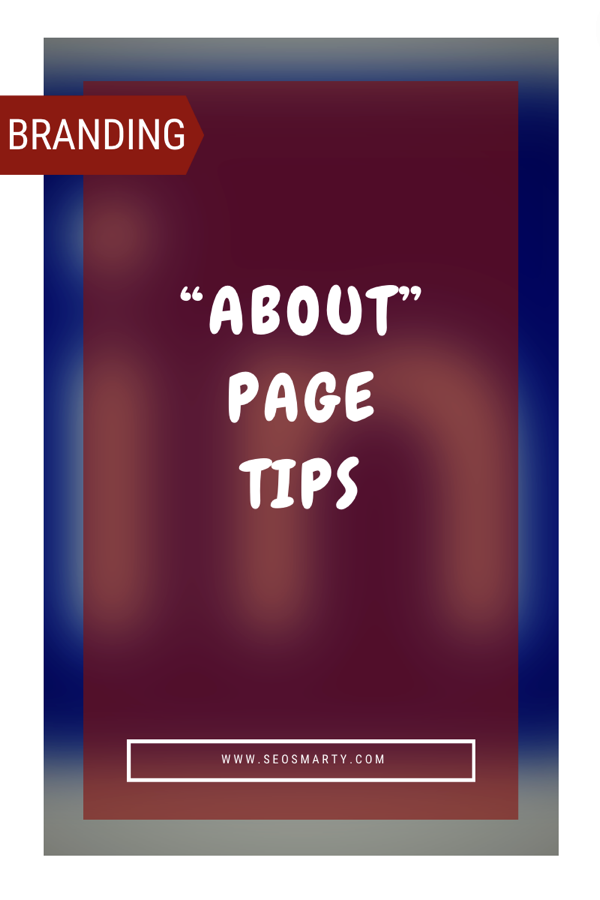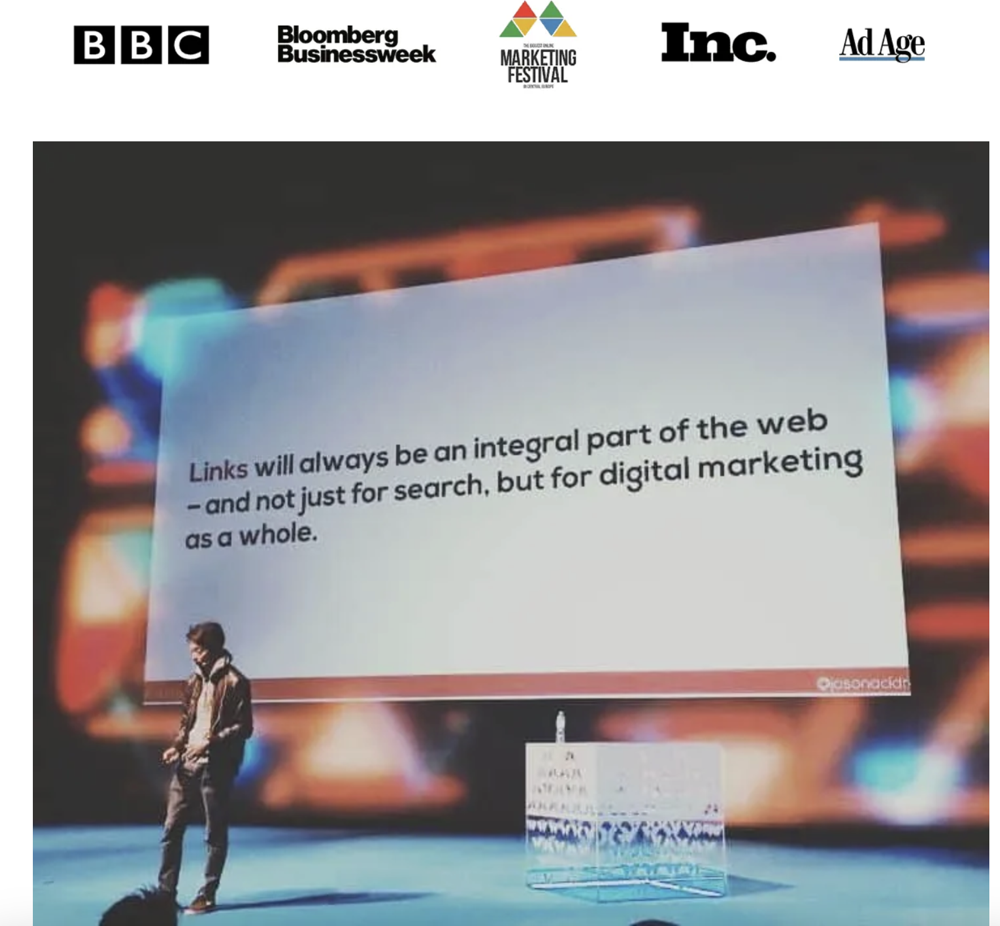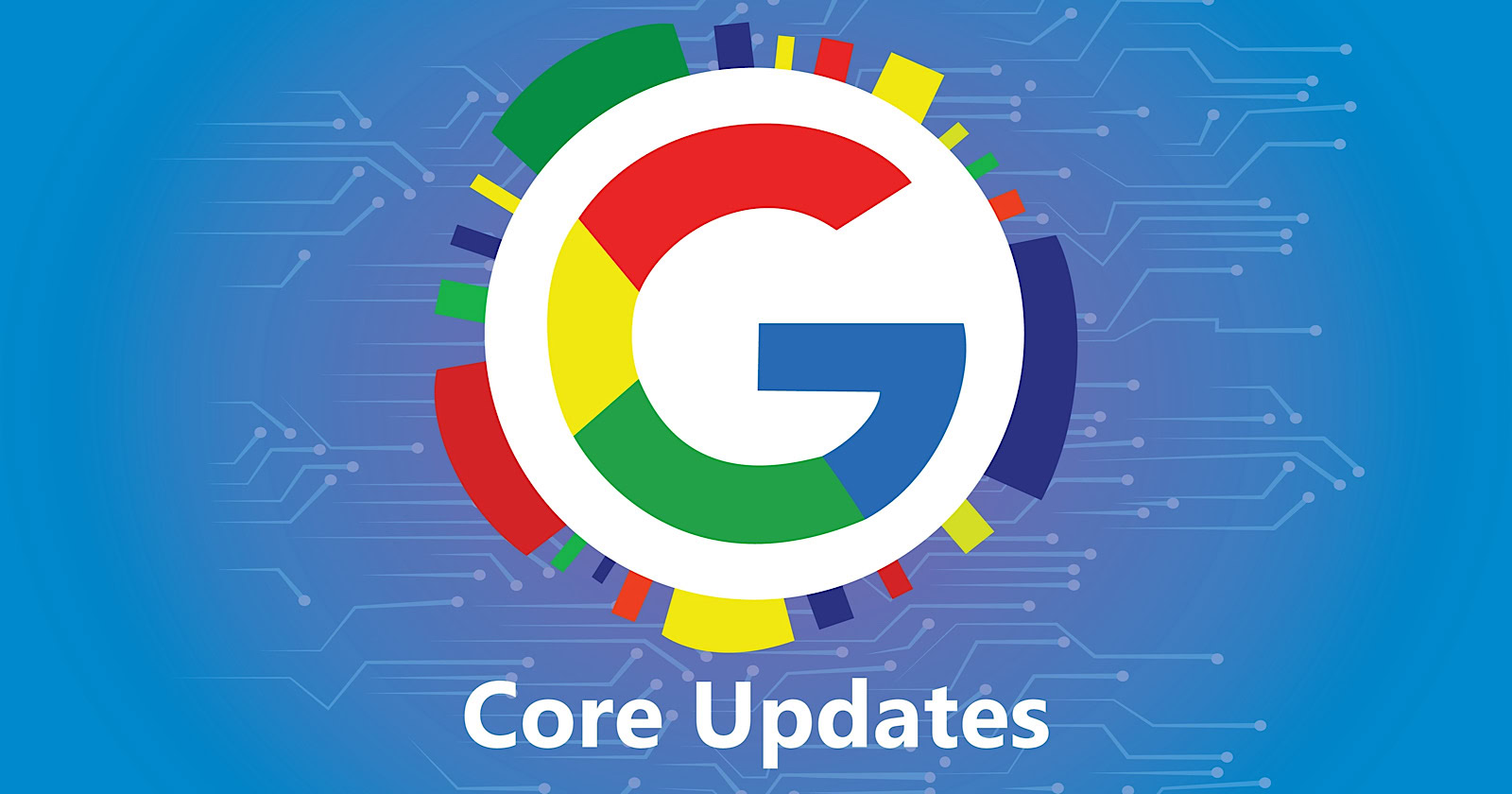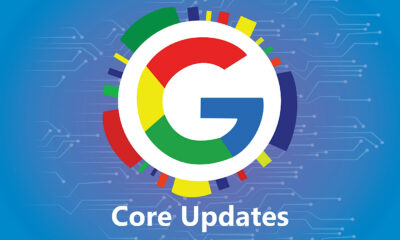SEO
Crafting an About Page that Proves the AUTHORITY in You

There are always those little but important things you need to do but never have time / motivation / memory to. For me, that’s my “About me” page. I set up my blog back in 2008-ish and my About page has been almost intact since then.
Yet, that’s not even a little thing… I talk so much about personal branding and I haven’t even done the essentials for myself: Taking care there’s one place on the web that has most complete information on myself.
Structure your “About” page properly
Some of the better About pages I have seen identify what the person or business offers, their expertise, how they can assist the public, and plenty of quality links re-enforcing what they have already said. Keeping the profile professional, showing a little personality, without overselling the product or service are the pages that catch my eye as a consumer.
Structure:
- A quick and to the point Tagline,
- An Introduction that outlines everything you want consumers to know about you or your biz,
- A fully completed Links section with good examples in each of the 3 categories of your own work to show your expertise.
Get inspired by examples:

Include unique proven entities
- List all your official social media channels on this page
- Link to your columns, profiles, books, and courses
- Use Person schema to show Google who you are and what you do
Tell your story
Tell your story on your about page. People that click on it want to learn more about the person or company behind the brand. A story is an entertaining way to let people get to know who you are and studies have also shown that stories improve reader engagement.
Your story should include both some personal details that will enable people to connect with you and facts about your life or company that will boost credibility and make them want to learn or buy from you. Break your story into easy to follow sections and include supporting pictures and images.
Focus on your strong points but be truthful
Sharing your company values is all well and good, but if you’re not explaining why you have those values, the words don’t mean quite so much. If you want people to believe that you’re an authority in your field, you have to let them know how you became one.
Focus on your strong points – what are you known for? Customer service, attention to detail, innovative design…whatever it is, spend some time emphasizing it on your About page.
Be truthful.
Don’t say you’re the best at anything unless it’s true. If you exaggerate, the integrity and authority of your entire company will be called into question.
Don’t forget to include your call-to-action
I see an about page as an opportunity to tell your story, assert your authority and build your list at the same time.
For me, an about page has to tell people several things:
- Who you are
- Why people should listen to you (your background)
- Who is talking about you (for example, publications where you have been featured)
- Trusted by (if you write for top tier publications in your industry, include them)
You can then incorporate an opt-in form to capture email addresses – be specific about how signing up can benefit your audience.
Then add a dash of personality (and humor if that’s your thing) to show you’re real.
Add testimonials and “Featured in” section
I believe having an “About me” or “About US” page is necessary not only because Google wants to see the author behind the content but because when users get attracted by the content, one of the first thing they search for is the author information.
If you have a powerful About Me page chances are you will be able to convert and convince more potential leads in to customers. Here are the 5 things that I believe an Ideal About Me page should contain
Expertise and Experience
It is better to include your work samples and link to some giant industry blogs where you got featured.
Get inspired by examples:

Word from Experts
If you ever get a word from the expert within your industry, including that can amazingly increase your conversation rate from your About Me page. When people see words from the people they trust, they tend to trust you too.
Example: MailChimp does that on their About me Page quite beautifully.
Social Channels
When the users are reading more about you on your About US page, this is probably the most targeted time show them where they can find you online or how they can talk to you in person.
Visualize!
Images are worth thousands of words, especially when making the right first impression is so important!
If you are an active creator, consider setting up an off-site about page to link your channels and help with conversions. Beacons AI is a good option.
What am I missing? Let’s discuss!
I am Ann Smarty, owner of SEOsmarty.com. I’ve been in the SEO industry for two decades. I am the former Editor-in-Chief of Search Engine Journal and a contributor to Mashable. These days I am running Viral Content Bee and writing for Moz, Buzzsumo, Wix and many others!
SEO
Google March 2024 Core Update Officially Completed A Week Ago

Google has officially completed its March 2024 Core Update, ending over a month of ranking volatility across the web.
However, Google didn’t confirm the rollout’s conclusion on its data anomaly page until April 26—a whole week after the update was completed on April 19.
Many in the SEO community had been speculating for days about whether the turbulent update had wrapped up.
The delayed transparency exemplifies Google’s communication issues with publishers and the need for clarity during core updates
Google March 2024 Core Update Timeline & Status
First announced on March 5, the core algorithm update is complete as of April 19. It took 45 days to complete.
Unlike more routine core refreshes, Google warned this one was more complex.
Google’s documentation reads:
“As this is a complex update, the rollout may take up to a month. It’s likely there will be more fluctuations in rankings than with a regular core update, as different systems get fully updated and reinforce each other.”
The aftershocks were tangible, with some websites reporting losses of over 60% of their organic search traffic, according to data from industry observers.
The ripple effects also led to the deindexing of hundreds of sites that were allegedly violating Google’s guidelines.
Addressing Manipulation Attempts
In its official guidance, Google highlighted the criteria it looks for when targeting link spam and manipulation attempts:
- Creating “low-value content” purely to garner manipulative links and inflate rankings.
- Links intended to boost sites’ rankings artificially, including manipulative outgoing links.
- The “repurposing” of expired domains with radically different content to game search visibility.
The updated guidelines warn:
“Any links that are intended to manipulate rankings in Google Search results may be considered link spam. This includes any behavior that manipulates links to your site or outgoing links from your site.”
John Mueller, a Search Advocate at Google, responded to the turbulence by advising publishers not to make rash changes while the core update was ongoing.
However, he suggested sites could proactively fix issues like unnatural paid links.
“If you have noticed things that are worth improving on your site, I’d go ahead and get things done. The idea is not to make changes just for search engines, right? Your users will be happy if you can make things better even if search engines haven’t updated their view of your site yet.”
Emphasizing Quality Over Links
The core update made notable changes to how Google ranks websites.
Most significantly, Google reduced the importance of links in determining a website’s ranking.
In contrast to the description of links as “an important factor in determining relevancy,” Google’s updated spam policies stripped away the “important” designation, simply calling links “a factor.”
This change aligns with Google’s Gary Illyes’ statements that links aren’t among the top three most influential ranking signals.
Instead, Google is giving more weight to quality, credibility, and substantive content.
Consequently, long-running campaigns favoring low-quality link acquisition and keyword optimizations have been demoted.
With the update complete, SEOs and publishers are left to audit their strategies and websites to ensure alignment with Google’s new perspective on ranking.
Core Update Feedback
Google has opened a ranking feedback form related to this core update.
You can use this form until May 31 to provide feedback to Google’s Search team about any issues noticed after the core update.
While the feedback provided won’t be used to make changes for specific queries or websites, Google says it may help inform general improvements to its search ranking systems for future updates.
Google also updated its help documentation on “Debugging drops in Google Search traffic” to help people understand ranking changes after a core update.
Featured Image: Rohit-Tripathi/Shutterstock
FAQ
After the update, what steps should websites take to align with Google’s new ranking criteria?
After Google’s March 2024 Core Update, websites should:
- Improve the quality, trustworthiness, and depth of their website content.
- Stop heavily focusing on getting as many links as possible and prioritize relevant, high-quality links instead.
- Fix any shady or spam-like SEO tactics on their sites.
- Carefully review their SEO strategies to ensure they follow Google’s new guidelines.
SEO
Google Declares It The “Gemini Era” As Revenue Grows 15%

Alphabet Inc., Google’s parent company, announced its first quarter 2024 financial results today.
While Google reported double-digit growth in key revenue areas, the focus was on its AI developments, dubbed the “Gemini era” by CEO Sundar Pichai.
The Numbers: 15% Revenue Growth, Operating Margins Expand
Alphabet reported Q1 revenues of $80.5 billion, a 15% increase year-over-year, exceeding Wall Street’s projections.
Net income was $23.7 billion, with diluted earnings per share of $1.89. Operating margins expanded to 32%, up from 25% in the prior year.
Ruth Porat, Alphabet’s President and CFO, stated:
“Our strong financial results reflect revenue strength across the company and ongoing efforts to durably reengineer our cost base.”
Google’s core advertising units, such as Search and YouTube, drove growth. Google advertising revenues hit $61.7 billion for the quarter.
The Cloud division also maintained momentum, with revenues of $9.6 billion, up 28% year-over-year.
Pichai highlighted that YouTube and Cloud are expected to exit 2024 at a combined $100 billion annual revenue run rate.
Generative AI Integration in Search
Google experimented with AI-powered features in Search Labs before recently introducing AI overviews into the main search results page.
Regarding the gradual rollout, Pichai states:
“We are being measured in how we do this, focusing on areas where gen AI can improve the Search experience, while also prioritizing traffic to websites and merchants.”
Pichai reports that Google’s generative AI features have answered over a billion queries already:
“We’ve already served billions of queries with our generative AI features. It’s enabling people to access new information, to ask questions in new ways, and to ask more complex questions.”
Google reports increased Search usage and user satisfaction among those interacting with the new AI overview results.
The company also highlighted its “Circle to Search” feature on Android, which allows users to circle objects on their screen or in videos to get instant AI-powered answers via Google Lens.
Reorganizing For The “Gemini Era”
As part of the AI roadmap, Alphabet is consolidating all teams building AI models under the Google DeepMind umbrella.
Pichai revealed that, through hardware and software improvements, the company has reduced machine costs associated with its generative AI search results by 80% over the past year.
He states:
“Our data centers are some of the most high-performing, secure, reliable and efficient in the world. We’ve developed new AI models and algorithms that are more than one hundred times more efficient than they were 18 months ago.
How Will Google Make Money With AI?
Alphabet sees opportunities to monetize AI through its advertising products, Cloud offerings, and subscription services.
Google is integrating Gemini into ad products like Performance Max. The company’s Cloud division is bringing “the best of Google AI” to enterprise customers worldwide.
Google One, the company’s subscription service, surpassed 100 million paid subscribers in Q1 and introduced a new premium plan featuring advanced generative AI capabilities powered by Gemini models.
Future Outlook
Pichai outlined six key advantages positioning Alphabet to lead the “next wave of AI innovation”:
- Research leadership in AI breakthroughs like the multimodal Gemini model
- Robust AI infrastructure and custom TPU chips
- Integrating generative AI into Search to enhance the user experience
- A global product footprint reaching billions
- Streamlined teams and improved execution velocity
- Multiple revenue streams to monetize AI through advertising and cloud
With upcoming events like Google I/O and Google Marketing Live, the company is expected to share further updates on its AI initiatives and product roadmap.
Featured Image: Sergei Elagin/Shutterstock
SEO
brightonSEO Live Blog

Hello everyone. It’s April again, so I’m back in Brighton for another two days of Being the introvert I am, my idea of fun isn’t hanging around our booth all day explaining we’ve run out of t-shirts (seriously, you need to be fast if you want swag!). So I decided to do something useful and live-blog the event instead.
Follow below for talk takeaways and (very) mildly humorous commentary. sun, sea, and SEO!
-

 MARKETING7 days ago
MARKETING7 days agoBattling for Attention in the 2024 Election Year Media Frenzy
-

 WORDPRESS6 days ago
WORDPRESS6 days ago13 Best HubSpot Alternatives for 2024 (Free + Paid)
-

 MARKETING6 days ago
MARKETING6 days agoAdvertising in local markets: A playbook for success
-

 SEARCHENGINES6 days ago
SEARCHENGINES6 days agoGoogle Core Update Flux, AdSense Ad Intent, California Link Tax & More
-

 AFFILIATE MARKETING7 days ago
AFFILIATE MARKETING7 days agoGrab Microsoft Project Professional 2021 for $20 During This Flash Sale
-

 MARKETING5 days ago
MARKETING5 days agoHow to Use AI For a More Effective Social Media Strategy, According to Ross Simmonds
-

 SEARCHENGINES5 days ago
SEARCHENGINES5 days agoGoogle Needs Very Few Links To Rank Pages; Links Are Less Important
-

 PPC4 days ago
PPC4 days ago10 Most Effective Franchise Marketing Strategies




![The Current State of Google’s Search Generative Experience [What It Means for SEO in 2024] person typing on laptop with](https://articles.entireweb.com/wp-content/uploads/2024/04/The-Current-State-of-Googles-Search-Generative-Experience-What-It.webp-400x240.webp)
![The Current State of Google’s Search Generative Experience [What It Means for SEO in 2024] person typing on laptop with](https://articles.entireweb.com/wp-content/uploads/2024/04/The-Current-State-of-Googles-Search-Generative-Experience-What-It.webp-80x80.webp)









